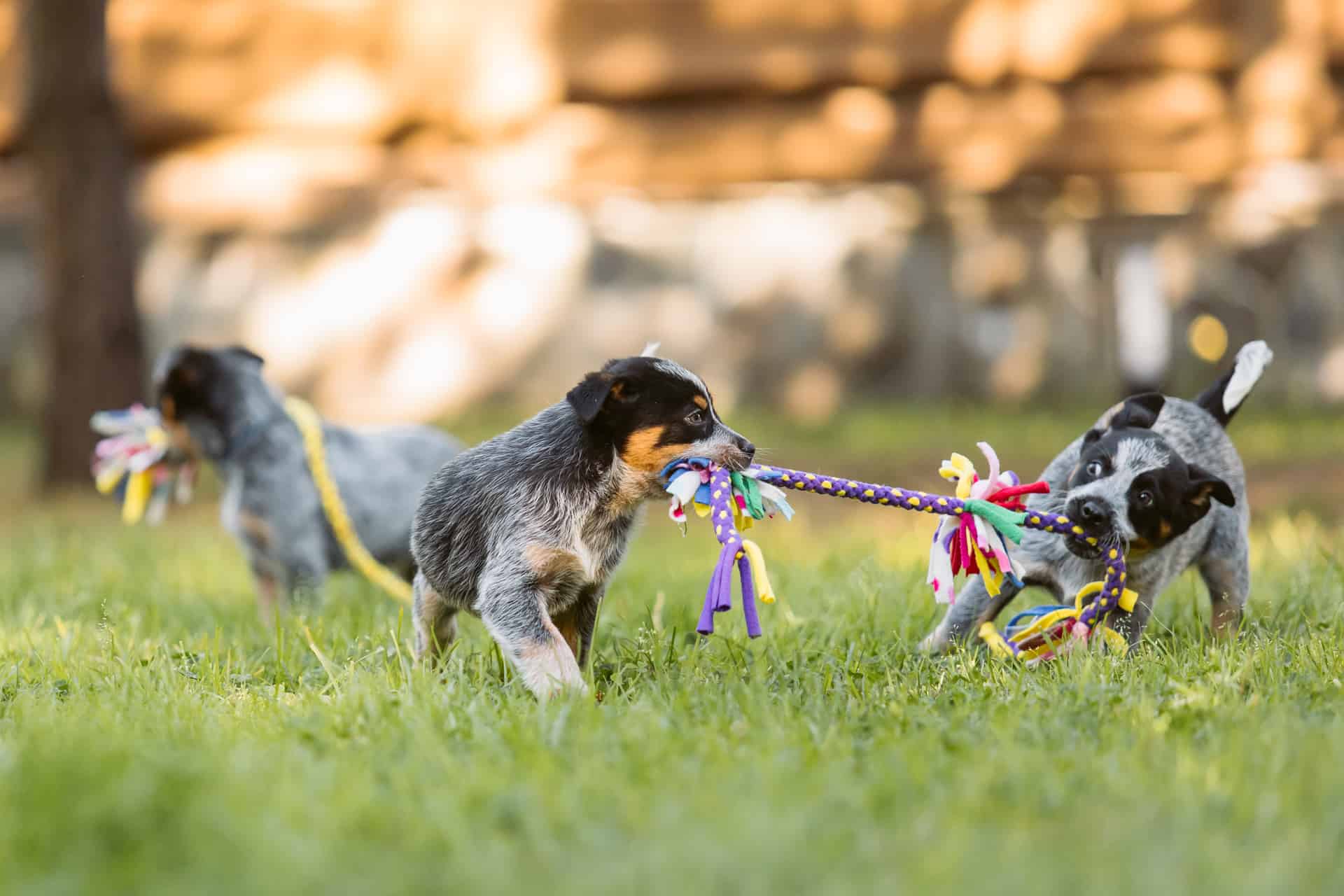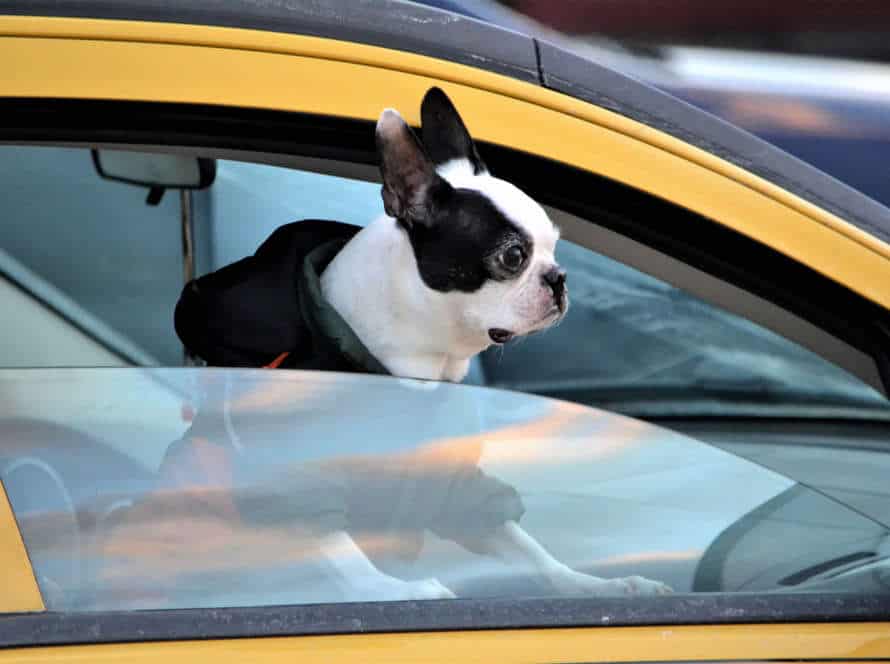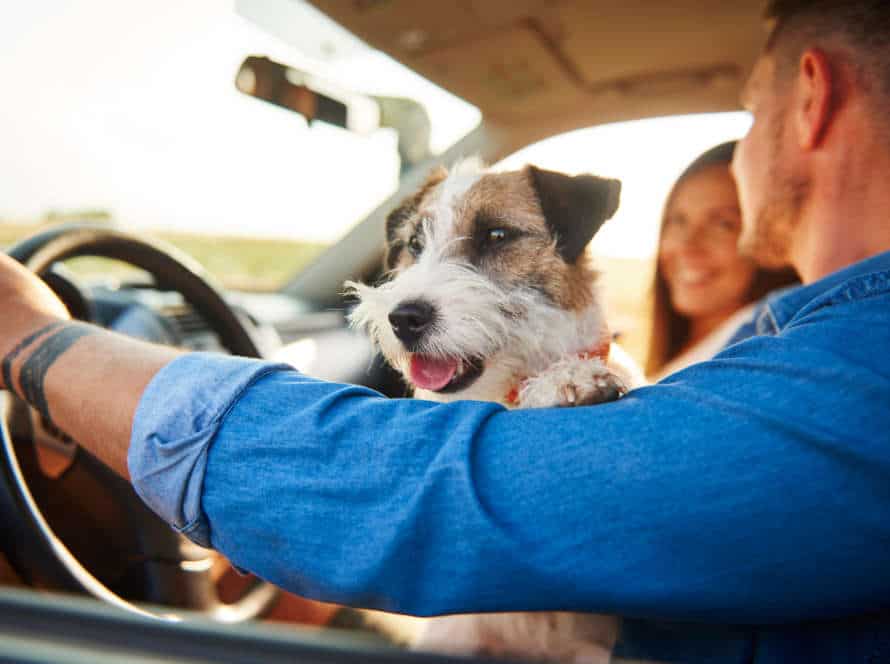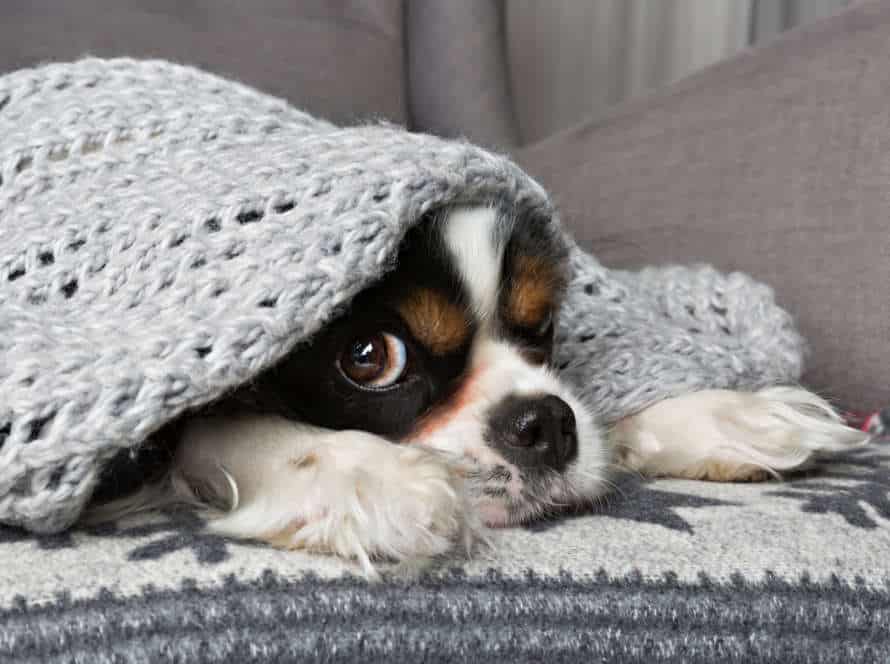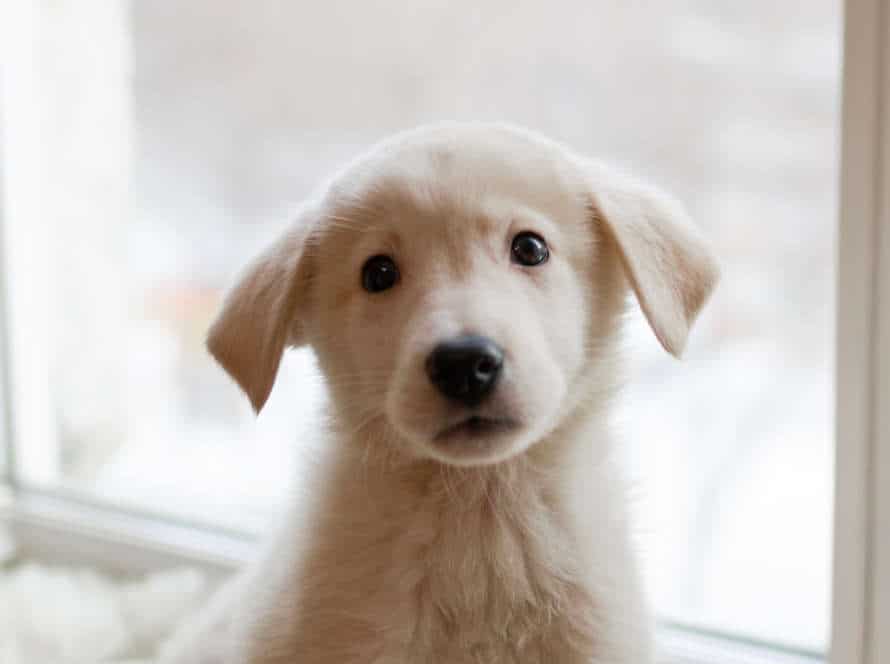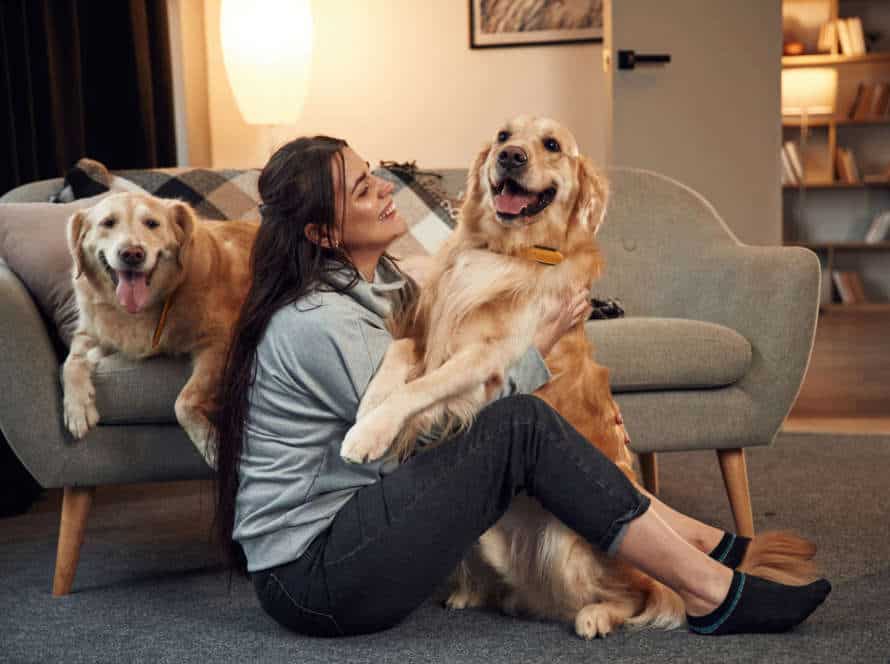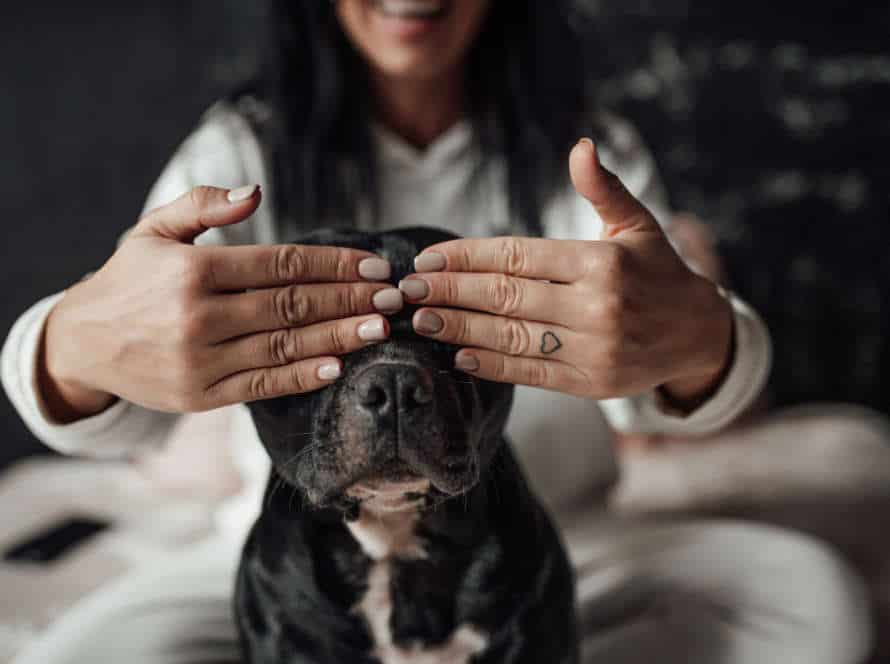Channeling Your Outgoing Puppy’s Energy for Positive Socialization
Outgoing puppies can be a bit of a challenge, but their energy can be used in a positive way to help them become more socialized. Here are a few ideas:
- Playtime: Take ’em to a dog park or open area where they can run and play safely.
- Training: Sign up for obedience classes – they’ll learn social cues and commands.
- Socializing: Introduce them to new people, environments, and other dogs.
- Toys: Give them stimulating and interactive toys to play with at home.
Stay patient and consistent during training. Reward them for good social behavior.
Pro Tip: Supervise them carefully when socializing – make sure the environment is secure.
Understanding Your Puppy’s Socialization Needs
Socializing your pup is key in their growth. It can be tough for new pet parents. Taking the time to comprehend your puppy’s social needs is a great stride towards helping them become confident. This section will focus on identifying the best methods for directing your puppy’s energy into positive socialization experiences.
Importance of Socialization
Socializing your pup is key to molding their behavior and temperament. It’s a process exposing them to people, animals, and environments. It trains them to respond with positivity, not fear or aggression.
This can help prevent issues, make your furry friend friendly, confident, and adaptable. It also reduces the chance of anxiety, fear, or aggression towards unfamiliar situations, people, and other animals.
To socialize your puppy, give them positive experiences with people of all ages, sexes, and ethnicities. Also, friendly dogs and different environments! Encourage good behaviors with treats, praise, and attention. Direct their energy into positive socialization experiences, not too much or too little.
By socializing your pup correctly, you’ll have a confidant, well-rounded, and happy companion for life! Pro Tip: The best time to start is between 3-14 weeks.
Socialization period for Puppies
The socialization period for puppies is vital. It starts from 3 weeks and continues until 14-16 weeks. During this time, puppies must be exposed to different people, animals, sights and sounds in a safe and positive environment. This helps them to learn and become used to different things.
As a pet parent, you can help your pup by taking them for walks, playing games and introducing them to new situations in a controlled way. Make sure the experiences are positive and not too much – puppies can be sensitive.
Pro Tip: Don’t stop at 14-16 weeks. Continue to give your dog new experiences throughout their lifetime to keep them adaptable and content.
Negative impacts of Inadequate Socialization
Inadequate socialization can have consequences for your puppy’s behavior. It’s essential to get to grips with their social needs and direct their energy into positive socialization.
Negative impacts can include:
- Fear & anxiety – they may become aggressive or withdrawn when exposed to unknown people, noises, or objects.
- Destructive behavior – without new experiences, they may become bored and start chewing and digging.
- Separation anxiety – if not socialized, they may become stressed when apart from their owners or other known dogs.
- Lack of obedience – they may not learn commands or adjust to new social settings.
To prevent these problems, actively socialize your pup and introduce them to different people, sounds, and environments. This will help create positive social experiences.
Identifying Your Puppy’s Energy Levels
Spotting your pup’s energy levels is the initial action for making it productive. This vigor depends on the breed and age of your pup. It can also change over time. Knowing your pup’s energy levels is vital. Use it to help them mingle and interact with other people and animals in a positive way.
Understanding the energy levels of different dog breeds
Different dog breeds have diverse energy levels that can modify their behavior and engagement level in training and exercise. Here are some examples:
- Border Collies: These pooches are famed for their high energy and need for mental stimulation. They do amazingly well in obedience and agility training, and require lots of daily playtime and exercise to remain healthy and content.
- Basset Hounds: This breed has moderate energy levels. They enjoy daily strolls and playtime, but are also content with just lounging.
- Greyhounds: Although these dogs are renowned for their speed and athleticism, they actually have low energy levels. They’re content with a few daily walks and naps.
Understanding your pup’s energy level can help you pick activities and training that best suit their needs and temperament. It also assists in creating a positive socialization routine that doesn’t exhaust your outgoing pup.
Pro Tip: If your pup appears restless or anxious, try boosting their exercise and playtime, or talking to a vet or professional dog trainer for advice on how to manage their energy.
Signs of High Energy Puppies
High-energy puppies can be a handful. But, with the right preparation, they can bring joy! Here are signs that your pup has high energy:
- Barking, jumping, and nipping too much.
- Struggling to relax and settle.
- Easily overstimulated and agitated.
- Always on the move and needs lots of stimulation.
If you see these signs, you can use positive techniques to direct their energy. For example,
- take your pup on long walks or runs.
- Engage in interactive playtime daily.
- Teach them basic obedience commands.
- Use puzzle toys and chew sticks to keep them occupied.
- Gradually introduce them to new people and situations.
With patience and dedication, you can turn your energetic pup into a wonderful companion!
Differences in energy levels between puppies and adult dogs
Puppies have higher energy levels than adult dogs. It’s vital to understand this as a pet owner. Knowing how to recognize your puppy’s energy level and managing it is essential to create positive behavior.
Differences between puppy and adult dog energy:
- Puppies have short bursts of intense energy, while adult dogs have more consistent energy all day.
- Puppies need more activities/exercises to use up energy.
- Training puppies to manage energy levels during socialization is necessary.
To direct energy in a positive way for socialization, activities like walks, group playtime, obedience training, and meeting other puppies can be useful. Start off slow and teach your puppy to control energy for good behavior as they mature.
Exercise and Play
Exercise is a must-do for puppies! It helps their growth and can tire them out. Play and exercise are the secrets for managing the energy of a hyper puppy. If you want to do this safely, think about these things:
- Make sure your pup is getting enough activity.
- Socialize them.
- Monitor their energy levels.
Importance of exercise in managing your puppy’s energy
It’s important to give your pup enough exercise or playtime to manage their energy and behaviour. This helps channel their energy in a positive way, as well as better physical fitness and less behavioural problems.
Regular exercise sessions or playtimes can make them feel more secure, reduce anxiety and stress, and improve their mental health.
Physical activities such as walking, jogging, or playing fetch can be great to use up their physical energy, which leads to better behaviour and concentration at home.
Mentally stimulating activities like obedience training or puzzle games can boost their cognitive skills, focus, and tire them out.
Remember, pups are naturally curious, so give them an enjoyable exercise routine – they’ll be happier and healthier!
Types of exercise for high energy puppies
Puppies are super energetic! It’s important to use that energy with regular exercise and play. Here are 3 ways to keep your high-energy pup fit and content:
- Fetching: Playing fetch is a great way to bond with your pup and get them exercised. Start off with throwing balls or Frisbees short distances, then gradually increase.
- Tug-of-war: A simple but effective full-body workout for your pup. Use a chew toy or rope, and be sure to stay in control of the game.
- Agility training: Activities like running through tunnels, jumping over hurdles, and weaving through poles. Not only is it great exercise, but it also helps build your pup’s confidence and coordination.
Pro Tip: Always supervise playtime to keep your pup safe. Provide fresh water and a shady spot to rest between sessions.
Importance of mental stimulation in addition to physical exercise
Physical exercise is important for your pup’s health and happiness. But, mental stimulation is just as, if not more, important! It can reduce anxiety and boredom, help them learn, and encourage socializing. Here are a few ideas:
- Interactive toys like puzzle feeders or treat-dispensing toys.
- Training and obedience classes to learn socialization skills.
- Socialization – exposing them to new sights, sounds, and experiences in a positive way.
- Games and tricks – like hide-and-seek – to engage their mind.
It’s crucial to give your pup both physical and mental stimulation for overall contentment.
Positive Reinforcement Training
Positive reinforcement training is a great choice for teaching your pup! With rewards and punishments, it can help him become a part of your family. It’s an enjoyable way to channel his energy, and help him learn how to obey commands, behave properly and be socialized.
Introduction to Positive Reinforcement
Positive reinforcement is an effective way to train your outgoing pup. It uses rewards to encourage good behavior. You give treats or praise when your pup does something desirable, like sitting or staying. Over time, they learn that these behaviors result in something positive.
This is especially helpful for outgoing pups, as it boosts their confidence and creates a positive connection with socialization.
For successful positive reinforcement, you must be consistent and patient. Speak to your pup in a positive, encouraging manner.
Ultimately, this type of training is about building a great relationship with your furry friend and making the socialization experience enjoyable.
Benefits of Positive Reinforcement Training
Positive reinforcement training is a great way to shape a pup’s behavior. When owners provide a reward for desirable behaviors, their dogs are more likely to act properly.
Benefits of this method include:
- Building trust and a happy relationship between the owner and pup.
- Strengthening a dog’s self-esteem and reducing fear.
- Encouraging learning and success.
- Increasing focus on the owner.
- Creating good socialization habits and lessening aggressive behavior.
Pro Tip: Clicker training, verbal praise, and small treats are all effective positive reinforcement techniques. They’ll motivate and reward your pup’s good behavior, helping them to become a great family pet.
Adequate Reinforcement for High Energy Puppies
High energy puppies need attention and reinforcement. Positive reinforcement training is an effective way to train and discipline them without physical punishment. Here are some tips:
- Reward good behavior with treats and praise.
- Have a consistent routine.
- Socialize them with other dogs and people.
- Stimulate their mind with puzzles.
Adequate reinforcements and positive socialization builds a strong bond between you and your pup. Pro tip- Remain calm and patient when training them. It’s tiring, but the end result is worth it!
Socialization Techniques
Socializing your pup is essential! It helps them develop in a healthy, well-rounded way. It’s especially crucial for extroverted puppies to have positive experiences with people and other animals. Here are some methods to ensure socialization happens properly and safely.
Controlled Exposures for Socialization
Controlled exposures for socialization is a way of introducing your outgoing pup to new places, people, and other animals safely. Avoid overwhelming them! To make sure your puppy’s energy is channeled positively, try these techniques:
- Use a leash or harness to keep your pup in check when in new environments.
- Start with short exposures, then gradually increase time spent.
- Reward pup with treats, praise, and encouragement for calm behaviour.
- Let pup meet different people – like kids, elderly, and those wearing hats, sunglasses, or strange clothes.
- Introduce pup to other animals carefully, beginning with one-on-one, then progressing to group playdates.
Pro Tip: Socialization is essential for your pup’s growth. It helps them build trust, confidence, and positive connections with new situations, people, and animals. Ask a professional trainer to make a socialization plan that works for your pup’s needs and personality.
Encourage Puppy Playtime
Puppy playtime is not only enjoyable, but it’s also necessary for socializing your pup. Here are some tips to help:
- Schedule play sessions with other puppies or adult dogs. This is great for teaching social cues and bite inhibition.
- Provide different toys – and switch them up regularly.
- Keep an eye on your pup during playtime – redirect if needed.
- Include training in your playtime exercises – such as come when called or sit and stay.
- Reward positive play with treats or praise. Make sure playtime is a positive experience for both of you!
Incorporating Socialization into Everyday Activities
Socializing your pup is vital to make them feel comfortable and become adjusted with people and other animals. Put socialization into everyday tasks to make good use of your pup’s energy. Here are some tips:
- Take your pup with you to pup-friendly public places like parks or stores.
- Invite friends and family to meet your pup in a controlled environment and watch their interactions.
- Take your pup for car rides to different places for them to get used to new sounds and sights.
- Do basic training exercises, like sit, stay and come, in your pup’s daily routine.
- Play games like fetch or hide-and-seek with your pup to boost their confidence and teach them commands.
Consistency is important when it comes to socializing your pup. Make the most of everyday chances to introduce them to new experiences and positive interactions with people and animals.
Managing Overstimulating Situations
Your pup has too much energy? If they’re easily overstimulated in certain situations, you must manage their behavior positively to help them socialize. Recognize when they need a break and provide healthy distractions. This will bridge the gap between them and the outside world.
Common Overstimulating Situations
As a puppy parent, it’s essential to know common situations that could overstimulate your pup. Plus, learn how to manage them while utilising their energy for socialization.
Common situations include:
- Meeting new people or animals: Introduce them slowly and watch their behaviour.
- Loud noises: Provide a calm and quiet environment with support and comfort.
- Playtime: Don’t overstimulate with too much playtime. Give them toys and structured play.
With the right management and training, your pup can learn to deal with overstimulation. Remember: consistency and positive reinforcement are key to success!
Recognizing Over-stimulated Puppies
Puppies who are over-stimulated may become hyperactive and have trouble controlling themselves. It’s important for pet owners to be able to recognize this behavior. Here are some signs to watch out for:
- Pacing, circling, or finding it hard to stay still.
- Growling or biting during play.
- Barking, whining, or chewing too much.
- Jumping or running around a lot.
- Destroying themselves or their surroundings.
To help manage over-stimulating situations, give your pup plenty of exercise and socialization. Train them basic commands like “sit” and “stay” and use rewards for good behavior. Try avoiding places like busy dog parks until your puppy is better trained.
Pro tip: If you’re having trouble dealing with your puppy’s over-stimulated behavior, get help from an experienced dog trainer or vet.
Techniques to Calm Overstimulated Puppies
Puppies who are overstimulated can be difficult to handle. Here are some tips to help calm them and use their energy in a better way:
- Control their surroundings – Stop them from being exposed to things that cause overstimulation.
- Do relaxing activities – Massage and yoga can help the pup release energy in a good way.
- Give them positive socialization – Interact with other puppies or dogs in a safe and supervised place.
- Include playtime – Play with them to get rid of extra energy and to help them learn to socialize in a positive way.
- Use rewards – Give treats or praise them when they show appropriate behavior.
These techniques will help your overstimulated puppy manage their energy and be a good companion.
Frequently Asked Questions
Q: Why is it important to channel my outgoing puppy’s energy?
A: Outgoing puppies can be prone to destructive behavior if they do not have an outlet for their energy. By channeling their energy into positive socialization activities, you can help them develop into well-behaved dogs.
Q: What are some positive socialization activities for my puppy?
A: Playing fetch, going for walks, attending training classes, and meeting new people and animals in controlled environments are all great ways to channel your puppy’s energy for positive socialization.
Q: How often should I engage my puppy in socialization activities?
A: It is recommended to engage your puppy in socialization activities at least once a day for 10-15 minutes. This will help them burn off excess energy and develop good socialization behaviors.
Q: What should I do if my puppy is too rough during playtime?
A: If your puppy is being too rough during playtime, redirect their energy to a more appropriate activity, such as training exercises or playing with toys. Consistently reinforcing positive behavior will help them learn appropriate socialization skills.
Q: How can I ensure my puppy’s safety during socialization activities?
A: Always supervise your puppy during socialization activities, and introduce them to new people and animals in controlled environments. Be aware of their body language and behavior, and intervene if necessary to prevent any potential conflicts.
Q: Can socialization activities help prevent behavior problems in my puppy?
A: Yes, socialization activities can help prevent behavior problems in puppies. By providing opportunities for exercise, training, and positive social interactions, you can help your puppy develop into a well-balanced and well-behaved dog.

